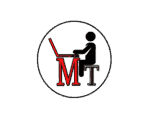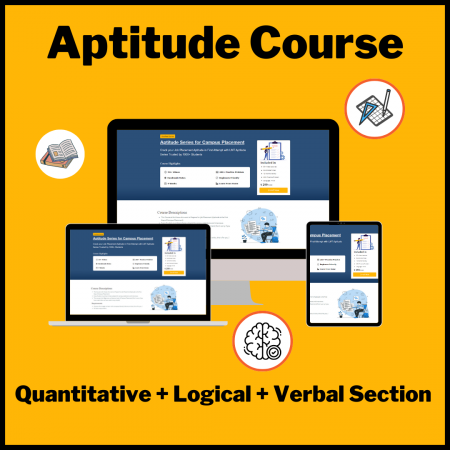Engineering Physics 1
-
QUANTUM PHYSICS
-
CRYSTALLOGRAPHY
-
SEMICONDUCTOR
-
INTERFERENCE AND DIFFRACTION OF LIGHT
-
SUPERCONDUCTIVITY
-
ULTRASONICS
-
ACOUSTICS
-
Course Overview
Engineering Physics 1
Tutor: Nelson
Engineering Physics 1 is semester 1 subject of final year of computer engineering in Mumbai University. Objectives of the subject Engineering Physics-I are as follows To understand basic physics concepts and founding principles of technology.
To develop scientific temperament for scientific observations, recording, and inference drawing essential for technology studies. Outcomes of the subject Engineering Physics-I are as follows Learners will be able to… Illustrate the fundamentals of quantum mechanics and its application. Explain peculiar properties of crystal structure and apply them in crystallography using X-ray diffraction techniques. Comprehend the concepts of semiconductor physics and applications of semiconductors in electronic devices. Employ the concept of interference in thin films in measurements. Discuss the properties of Superconductors and Supercapacitors to apply them in novel applications. Compare the properties of engineering materials for their current and futuristic frontier applications.
Engineering physics, or engineering science, refers to the study of the combined disciplines of physics, mathematics, biology, social science, and engineering, particularly computer, nuclear, electrical, electronic, aerospace, materials or mechanical engineering. By focusing on the scientific method as a rigorous basis, it seeks ways to apply, design, and develop new solutions in engineering
Prerequisites for this modules are as follows Dual nature of radiation, Photoelectric effect Matter waves ,wave nature of particles, de-Broglie relation, Davisson-Germer experiment. Module QUANTUM PHYSICS consists of the following subtopics De Broglie hypothesis of matter waves; properties of matter waves; wave packet, phase velocity and group velocity; Wave function; Physical interpretation of wave function; Heisenberg uncertainty principle; nonexistence of electron in nucleus; Schrodinger‘s time dependent wave equation; time independent wave equation; Particle trapped in one dimensional infinite potential well, Quantum Computing.
Prerequisites before studying Crystal Physics (Unit cell, Space lattice, Crystal structure, Simple Cubic, Body Centered Cubic, Face Centered Cubic, Diamond Structure, Production of X-rays) Module CRYSTALLOGRAPHY consists of the following subtopics Miller indices; interplanar spacing; X-ray diffraction and Bragg‘s law; Determination of Crystal structure using Bragg‘s diffractometer; (Prerequisites: Intrinsic and extrinsic semiconductors, Energy bands in conductors, semiconductors and insulators, Semiconductor diode, I-V characteristics in forward and reverse bias. Module SEMICONDUCTOR PHYSICS consists of the following subtopics Direct & indirect band gap semiconductor; Fermi level; Fermi dirac distribution; Fermi energy level in intrinsic & extrinsic semiconductors; effect of impurity concentration and temperature on fermi level; mobility, current density; Hall Effect; Fermi Level diagram for p-n junction (unbiased, forward bias, reverse bias); Applications of semiconductors: LED, Zener diode, Photovoltaic cell. Prerequisites : Wave front and Huygen’s principle, reflection and refraction, Interference by division of wave front, Youngs double slit experiment) Module INTERFERENCE IN THIN FILM consists of the following subtopics Interference by division of amplitude, Interference in thin film of constant thickness due to reflected and transmitted light; origin of colours in thin film; Wedge shaped film; Newton‘s rings. Applications of interference – Determination of thickness of very thin wire or foil; determination ofrefractive index of liquid; wavelength of incident light; radius of curvature of lens; testing of surfaceflatness; Anti-reflecting films and Highly reflecting film.
Before studying this module SUPERCONDUCTORS AND SUPERCAPACITORS Prerequisites are Electric current, flow of electric charges in a metallic conductor, drift velocity, mobility and their relation with electric current, Ohm’s law, electrical resistance, V-I characteristics (linear and non-linear), electrical resistivity and conductivity temperature dependence of resistance) Module SUPERCONDUCTORS AND SUPERCAPACITORS consists of the following subtopics Superconductors: Critical temperature, critical magnetic field, Meissner‘s effect, Type I and Type II and high Tc superconductors; Supercapacitors: Principle, construction, materials and applications, comparison with capacitor and batteries : Energy density, Power density,
Before studying this Module ENGINEERING MATERIALS AND APPLICATIONS Prerequisites are Paramagnetic materials, diamagnetic materials, ferromagnetic materials, crystal physics, Conductors and insulators, free charges and bound charges inside a conductor. Dielectrics and electric polarisation, capacitors and capacitance) Module ENGINEERING MATERIALS AND APPLICATIONS consists of the following subtopics Liquid crystals: Nematic, Smectic and cholesteric phases, Liquid crystal display. Multiferroics : Type I & Type II multiferroics and applications, Magnetoresistive Oxides: Magnetoresistance, GMR and CMR materials, introduction to spintronics.
Suggested References books for the subject Engineering Mathematics-I by Mumbai university are as follows A text book of Engineering Physics-Avadhanulu&Kshirsagar, S. Chand. A textbook of Optics – N. Subramanyam and Brijlal, S.Chand. Fundamentals of optics by Jenkins and White, McGrawHill. Solid State Electronic Devices- B. G. Streetman, Prentice Hall Publisher. Modern Engineering Physics – Vasudeva, S.Chand . Concepts of Modern Physics- ArtherBeiser, Tata McGraw Hill. A Text Book of Engineering Physics, S. O. Pillai, New Age International Publishers. 8. Introduction to Solid State Physics- C. Kittle, John Wiley& Sons publisher. Ultracapacitors: The future of energy storage- R.P Deshpande, McGraw Hill. Advanced functional materials – AshutoshTiwari, LokmanUzun, Scrivener Publishing LLC.
What you’ll Learn:
- Understand founding principles of technology
- Basic physics concepts made easier!
- Helps in building foundation of your technical quotient.
Description:
This course starts with quantum physics thereby, knowing the fundamentals of quantum mechanics and its application. We will walk through the concepts such as, properties of crystal structure. Learn semiconductor physics and applications. Exciting concepts like Superconductors and supercapacitors will be introduced.
Join in to learn Engineering Physics – 1, equally important from the academic as well as real-world knowledge.
Modules Covered:
- Quantum Physics
- Crystallography
- Semiconductor Physics
- Interference in thin film
- Superconductors and Supercapacitors
- Engineering materials and applications
Feel forward to have a look at course description and demo videos and we look forward to see you learning with us.
Prepare For Your Placements: https://lastmomenttuitions.com/courses/placement-preparation/
![]()
/ Youtube Channel: https://www.youtube.com/channel/UCGFNZxMqKLsqWERX_N2f08Q
Follow For Latest Updates, Study Tips & More Content!
Course Features
- Lectures 46
- Quizzes 0
- Duration 50 hours
- Skill level All levels
- Language English
- Students 31
- Certificate No
- Assessments Yes



![SEBI GRADE A – IT 2025 SEBI GRADE A 2025 – IT [ Phase 1 + Phase 2 ]](https://lastmomenttuitions.com/wp-content/uploads/2025/12/SEBI-GRADE-A-IT-2025-450x450.png)
